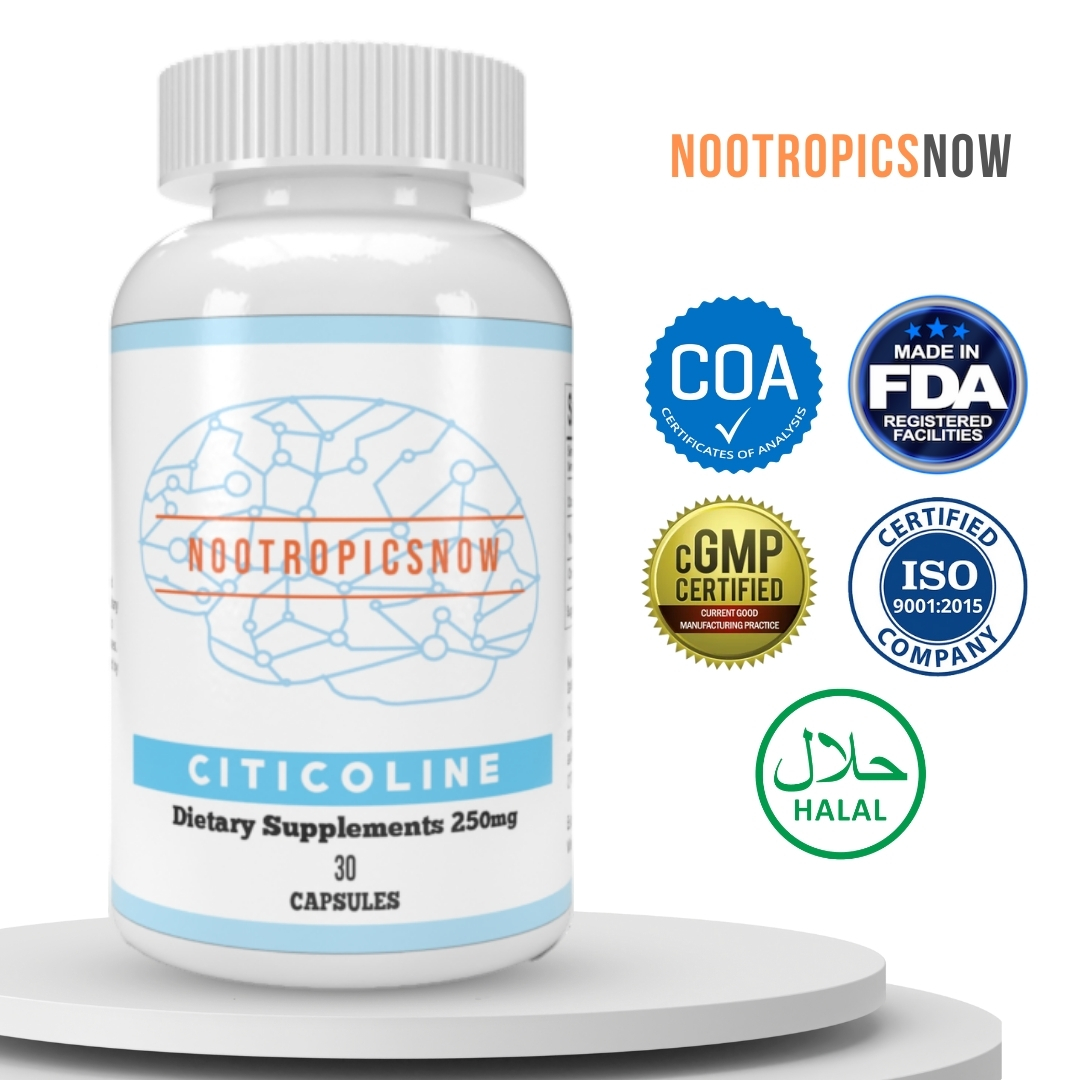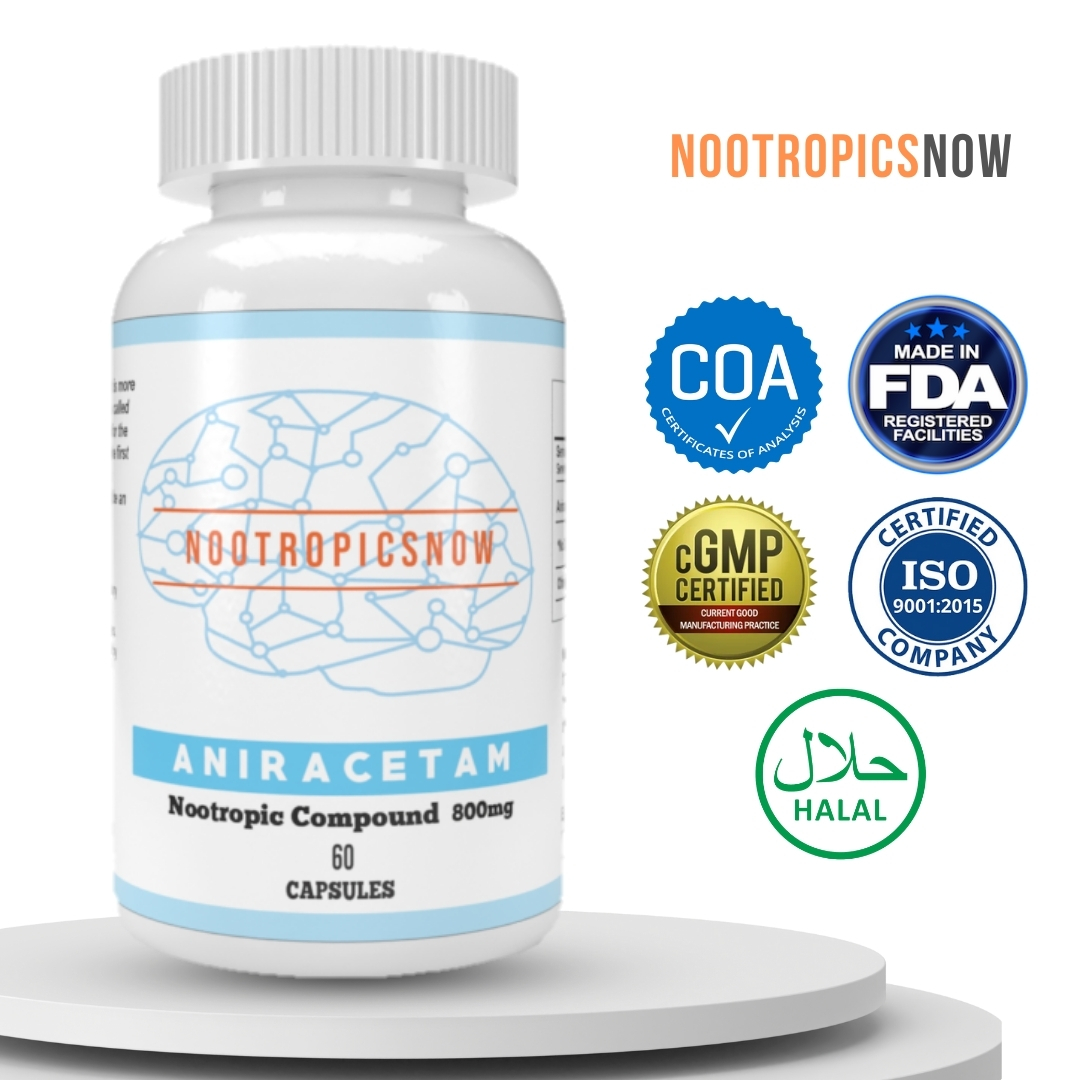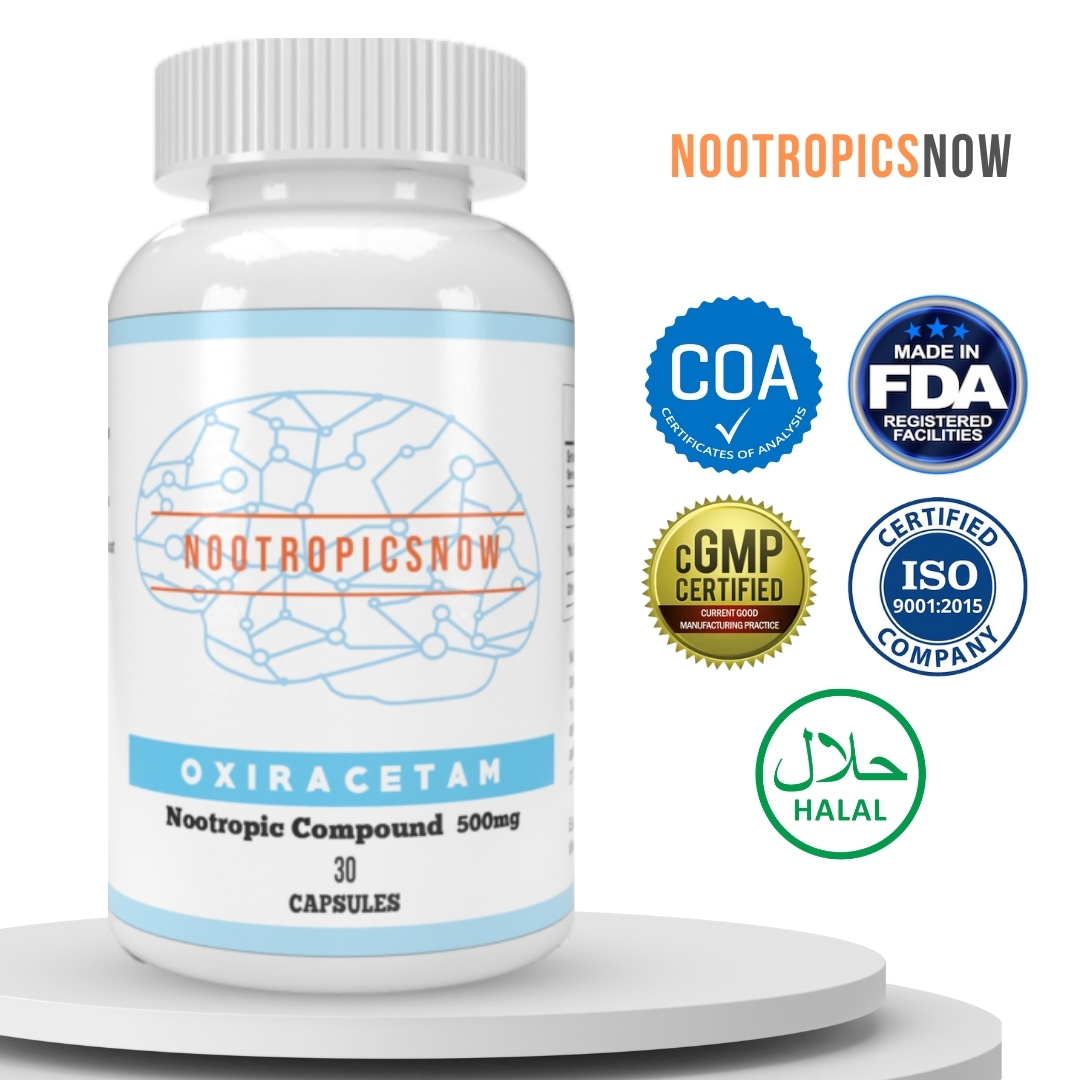Noopept: Benefits, Dosage & Side Effects

Noopept: Unlocking Cognitive Potential

Noopept (N-phenylacetyl-L-prolylglycine ethyl ester) has emerged as a popular nootropic, attracting attention from those seeking cognitive enhancement. Its potential benefits, ease of access, and purported rapid action distinguish it from other cognitive enhancers. It is a synthetic molecule initially developed in Russia with claimed neuroprotective and cognitive-enhancing effects. Therefore, it’s crucial to delve deeper into its properties, mechanisms, and safety profile.
Understanding Noopept’s Core Properties
Noopept is a synthetic ethyl ester of a dipeptide, Prolyl-Glycine. This essentially means it’s a modified version of two amino acids linked together. Crucially, it is considered a prodrug. Consequently, after ingestion, enzymes in the body break it down into cycloprolylglycine, which is thought to be the active form. The molecular weight of Noopept is relatively low, which may explain its purportedly fast action and good bioavailability. The small size allows it to cross the blood-brain barrier with relative ease.
Delving into the Mechanism of Action
The exact way Noopept works is still being investigated, yet several mechanisms have been proposed. These mechanisms are central to understanding Noopept’s purported benefits.
While these mechanisms offer insights into Noopept’s potential actions, further research is needed to fully elucidate its complex effects on the brain.
The Cognitive Benefits: Exploring the Potential
Users often report a range of cognitive benefits from taking Noopept. However, it’s important to remember that individual experiences can vary. Some users report no noticeable benefit, while others experience significant improvements.
It’s crucial to emphasize that the scientific evidence supporting these benefits is still evolving. While some studies show promise, more rigorous research is required to confirm these effects definitively.
Navigating the Potential Side Effects
Like any substance, Noopept can cause side effects in some individuals. It’s important to be aware of these potential effects before considering its use.
It is essential to note that the severity and frequency of side effects can vary significantly from person to person. Starting with a low dose and gradually increasing it can help minimize the risk of adverse effects.
Determining the Optimal Dosage
The optimal dosage of Noopept varies from person to person, as individual sensitivity can play a significant role. However, a common starting point is 10 mg, taken twice daily. The maximum recommended dosage is typically around 30 mg per day.
Experimenting within this range can help determine the most effective dose for individual needs. It’s crucial to start with a low dose and gradually increase it, carefully monitoring for any side effects.
Long-Term Effects: What to Expect?
Limited research exists regarding the long-term effects of Noopept use. Therefore, caution is advised when considering long-term supplementation.
Anecdotal reports from users on platforms like Longecity.org suggest both positive and negative long-term outcomes. Some users report sustained cognitive benefits, while others describe a diminished response over time or the development of tolerance.
Stacking Noopept: Combining for Synergistic Effects
Many nootropic users experiment with stacking Noopept with other substances to enhance its effects. However, it’s important to exercise caution when combining different substances, as interactions can occur.
Some popular Noopept stacks include:

View Product
Before combining Noopept with other substances, it’s essential to research potential interactions and start with low doses to assess tolerance.
Legal Status and Availability
The legal status and availability of Noopept vary depending on the country. In some countries, like Russia, Noopept is a prescription medication. In other countries, like the United States, it is unregulated and can be purchased as a dietary supplement.
In the UK, Noopept is banned and classified as a psychoactive substance.
The availability of Noopept also varies depending on the country. It can typically be purchased online from various nootropic vendors.
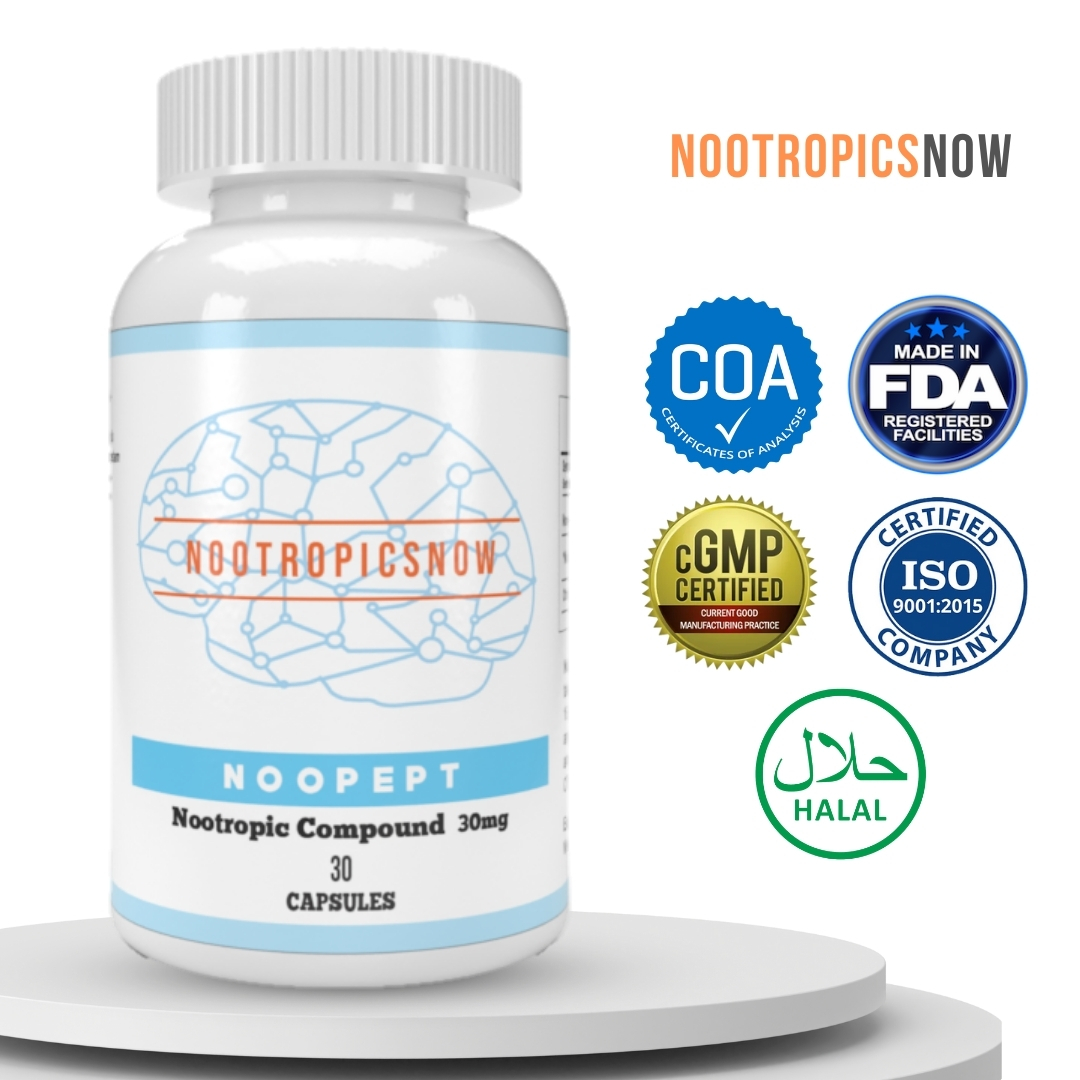
View Product
Noopept: A Summary
Noopept is a synthetic nootropic with potential cognitive-enhancing and neuroprotective properties. Although the specific mechanisms of action and dosage requirements need more study, it has the potential to be useful. Its most popular benefits consist of improved memory and focus, and some studies show it has a neuroprotective effect. Before using Noopept, users should be aware of the risks and speak with a doctor, as with any cognitive enhancer.
`markdown
Diving Deeper: Noopept – Benefits, Side Effects, and Usage
Noopept (N-phenylacetyl-L-prolylglycine ethyl ester) is a synthetic molecule often marketed as a nootropic, or cognitive enhancer. First synthesized in Russia in the mid-1990s, it gained popularity for its perceived ability to improve memory, focus, and overall cognitive function. However, while anecdotal evidence abounds, understanding its efficacy and safety requires a closer examination. Noopept’s unique position in the nootropic landscape makes it crucial to have a comprehensive understanding of its properties.
How Noopept Works: Unveiling the Mechanisms
Noopept’s mechanism of action is complex and not completely elucidated. Several theories attempt to explain its cognitive-enhancing effects. Unlike some nootropics with direct interactions with neurotransmitter systems, Noopept appears to work indirectly, influencing various brain processes.
1. Neurotrophic Factor Enhancement: BDNF and NGF
One prominent theory focuses on Noopept’s potential to increase the production of Brain-Derived Neurotrophic Factor (BDNF) and Nerve Growth Factor (NGF). BDNF is crucial for neuronal survival, growth, and differentiation. It supports synaptic plasticity, the brain’s ability to form new connections, which is fundamental for learning and memory. Similarly, NGF plays a vital role in the survival and function of nerve cells. The stimulation of these neurotrophic factors by Noopept may underpin its reported cognitive benefits. By fostering a brain environment conducive to neuronal health and growth, Noopept may promote long-term cognitive improvements.
2. Glutamate Receptor Modulation
Glutamate is the primary excitatory neurotransmitter in the brain. Excessive glutamate activity, however, can lead to excitotoxicity, damaging neurons. Noopept appears to modulate glutamate receptor activity, potentially protecting against excitotoxicity and optimizing glutamate neurotransmission for enhanced cognitive function. By preventing the overstimulation of glutamate receptors, Noopept could protect brain cells from damage while still facilitating efficient communication between them.
3. Cholinergic Effects
The cholinergic system, involving the neurotransmitter acetylcholine, is critical for memory, learning, and attention. While Noopept doesn’t directly bind to acetylcholine receptors, it may indirectly enhance cholinergic function. Some studies suggest that it can increase acetylcholine levels in the brain. Others indicate that Noopept influences the expression of cholinergic receptors. This enhancement of the cholinergic system may contribute to the reported improvements in memory and cognitive performance associated with Noopept use.
4. Antioxidant Properties
Oxidative stress, caused by free radicals, can damage brain cells and impair cognitive function. Noopept exhibits antioxidant properties, potentially protecting the brain from oxidative damage. This antioxidative effect may contribute to Noopept’s neuroprotective properties and contribute to long-term cognitive health. By scavenging free radicals, Noopept could help maintain the integrity and function of brain cells.
Consider supplementing with Curcumin for added antioxidant benefits.
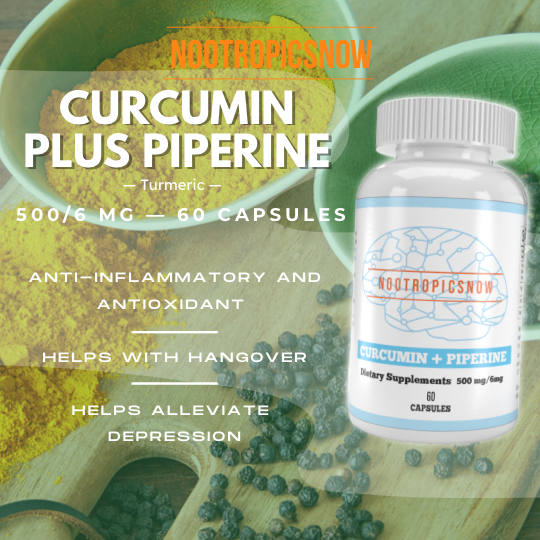
View Product
5. Gene Expression
Emerging research suggests Noopept can influence gene expression in the brain. This implies Noopept has the potential to alter the production of proteins involved in neuronal function, plasticity, and survival. By modulating gene expression, Noopept could potentially induce long-lasting changes in brain structure and function, contributing to sustained cognitive improvements. However, more research is needed to fully understand the scope and significance of these effects.
Cognitive Benefits of Noopept: What Users Report
While scientific research is ongoing, user experiences provide valuable insights into Noopept’s potential cognitive benefits. These subjective reports often highlight specific improvements in various cognitive domains.
1. Enhanced Memory and Learning
Improved memory is frequently reported by Noopept users. Many describe an easier time recalling information, both recent and past memories. They also note improved learning ability, with a faster acquisition of new skills and knowledge. These memory and learning benefits may be linked to Noopept’s influence on neurotrophic factors and cholinergic function. The subjective experiences of improved memory and learning highlight the potential of Noopept to support cognitive abilities.
2. Increased Focus and Concentration
Noopept users often report enhanced focus and concentration, enabling them to sustain attention on tasks for extended periods. This increased focus may contribute to improved productivity and performance in both academic and professional settings. This enhanced focus, in turn, can lead to greater efficiency and improved outcomes in various tasks and activities.
3. Improved Clarity and Mental Energy
Some users describe experiencing improved mental clarity and heightened mental energy levels. This can manifest as reduced brain fog, increased alertness, and a greater sense of cognitive sharpness. Such improvements in mental clarity can lead to improved decision-making, problem-solving, and overall cognitive performance.
For increased mental energy and focus, you can try L-Tyrosine
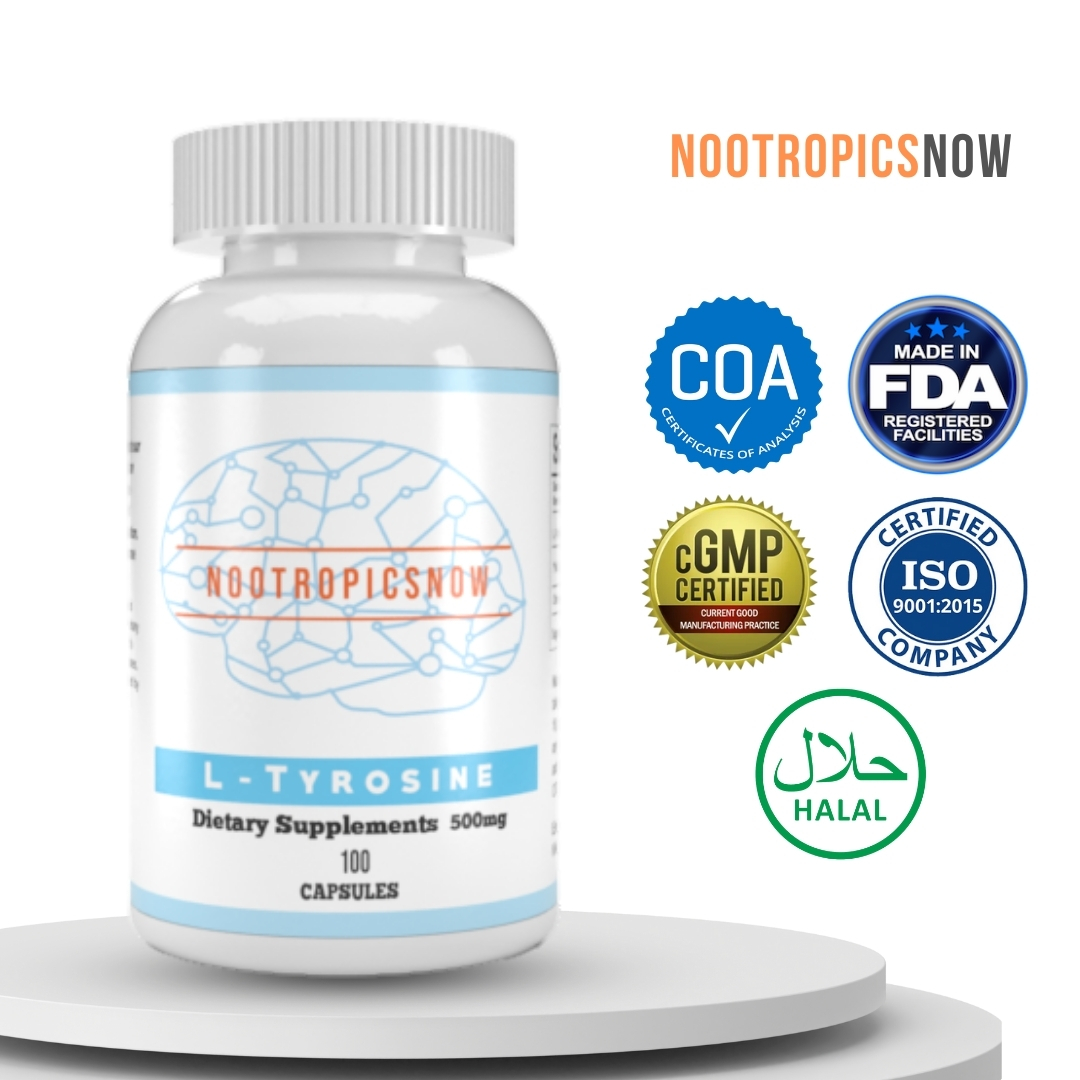
View Product
4. Reduced Anxiety
An unexpected benefit reported by some users is a reduction in anxiety levels. This may be due to Noopept’s influence on neurotransmitter systems involved in mood regulation. The potential anxiolytic effects of Noopept make it an appealing option for individuals seeking cognitive enhancement without the stimulating side effects often associated with other nootropics.
To further reduce anxiety, consider L-Theanine

View Product
5. Enhanced Sensory Perception
While less common, some users report enhanced sensory perception, including improvements in vision, hearing, and taste. This may be related to Noopept’s effects on neuronal function and plasticity in sensory processing areas of the brain. Such sensory enhancements can lead to a richer and more vivid experience of the world.
It is important to emphasize that these cognitive benefits are based on user reports and anecdotal evidence. More rigorous scientific research is needed to validate these claims and determine the underlying mechanisms.
Noopept Side Effects: What to Watch Out For
While generally considered safe, Noopept can cause side effects in some individuals. Being aware of these potential adverse effects is crucial before considering Noopept use.
1. Headaches
Headaches are a common side effect, especially when starting Noopept or taking higher doses. These headaches are often mild and temporary, but they can be bothersome for some users. Reducing the dosage or taking a break from Noopept can often alleviate these headaches.
2. Irritability and Agitation
Some individuals report experiencing increased irritability and agitation while taking Noopept. This can manifest as heightened sensitivity to stimuli, a shorter temper, and a general feeling of unease. If irritability and agitation become problematic, discontinuing Noopept may be necessary.
3. Sleep Disturbances
Noopept can interfere with sleep patterns, leading to insomnia or difficulty falling asleep. It is therefore advised to take it earlier in the day to minimize its impact on sleep. If sleep disturbances persist, it may be necessary to adjust the dosage or discontinue use.
Consider taking Ashwagandha

View Product
4. Gastrointestinal Issues
Some users experience gastrointestinal issues such as nausea, stomach upset, or diarrhea. These symptoms are typically mild and transient but can be uncomfortable. Taking Noopept with food may help reduce gastrointestinal side effects.
5. Cognitive Impairment
Paradoxically, some individuals experience cognitive impairment, such as brain fog or difficulty concentrating, while taking Noopept. This can be counterintuitive, given Noopept’s intended cognitive-enhancing effects. If cognitive impairment occurs, it is important to discontinue use and assess whether Noopept is the cause.
It is vital to remember that side effects can vary widely among individuals. Starting with a low dosage and carefully monitoring your response is crucial. Consulting with a healthcare professional is also advisable, especially if you have pre-existing health conditions or are taking other medications.
Noopept Dosage: Finding the Right Amount
Determining the optimal Noopept dosage can be challenging, as individual responses vary significantly. Starting with a low dose and gradually increasing it until the desired effects are achieved is generally recommended.
Recommended Dosage Range
The typical dosage range for Noopept is 10-30 mg per day, usually divided into two or three doses. Some users may find that lower doses are sufficient, while others may require higher doses to experience noticeable effects. It is essential to start at the lower end of the range and gradually increase the dosage, if needed, to minimize the risk of side effects.
Timing of Doses
Noopept is usually taken in the morning and early afternoon to avoid sleep disturbances. Taking the last dose too close to bedtime can interfere with sleep quality.
Cycling Noopept
Some users advocate for cycling Noopept, which involves taking it for a period of time followed by a break. This is believed to prevent tolerance and maintain sensitivity to its effects. A common cycle is to take Noopept for 4-8 weeks followed by a 2-4 week break. However, there is no scientific evidence to support the effectiveness of cycling Noopept.
Sublingual Administration
Noopept is often administered sublingually, which involves placing the powder under the tongue and allowing it to dissolve. This route of administration is believed to result in faster absorption and quicker onset of effects. However, Noopept can also be taken orally with water.
It is crucial to emphasize that dosage recommendations are based on anecdotal evidence and user experiences. More research is needed to determine the optimal dosage and administration methods for Noopept.
If you’re looking to buy Noopept, you can find it here

View Product
Legal Status and Availability of Noopept in the Philippines
The legal status of Noopept in the Philippines is somewhat unclear. It is not a controlled substance or a prescription drug, but it is also not explicitly approved for sale as a dietary supplement or over-the-counter medication. This ambiguous legal status can make it difficult to obtain Noopept in the Philippines.
Online Vendors
The most common way to purchase Noopept in the Philippines is through online vendors that ship from overseas. However, it is important to choose reputable vendors that provide high-quality products and reliable shipping. Verify the vendor’s reputation by reading reviews and checking for certifications.
Local Pharmacies and Supplement Stores
Some local pharmacies and supplement stores may carry Noopept, but availability is limited. Check with your local pharmacies and supplement stores to see if they stock Noopept.
Import Regulations
Be aware of any import regulations that may apply to Noopept. The Bureau of Customs may seize shipments of Noopept if they are not properly declared or if they violate any import restrictions. Check the Bureau of Customs website for the latest import regulations.
It is crucial to exercise caution when purchasing Noopept online or from unfamiliar sources. Counterfeit products and adulterated supplements are common, so it is important to choose reputable vendors.
Noopept vs. Piracetam: A Comparison
Noopept is often compared to Piracetam, another popular nootropic. While both are believed to enhance cognitive function, they have distinct differences.
Potency
Noopept is significantly more potent than Piracetam. It is estimated to be 1,000 times more potent, meaning that a much smaller dose of Noopept is needed to achieve the same effects as Piracetam.
Mechanism of Action
While both Noopept and Piracetam are believed to enhance cognitive function, they may work through different mechanisms. Piracetam is thought to modulate glutamate receptors and enhance neuronal membrane fluidity. Noopept, on the other hand, may increase BDNF and NGF levels and modulate glutamate and acetylcholine neurotransmission.
Effects
The reported effects of Noopept and Piracetam are similar, including improved memory, focus, and learning ability. However, some users report that Noopept has a more stimulating effect than Piracetam, while others find Piracetam to be more effective for enhancing memory.
Side Effects
The side effects of Noopept and Piracetam are also similar, including headaches, anxiety, and sleep disturbances. However, some users report that Noopept is more likely to cause anxiety and irritability than Piracetam.
Ultimately, the choice between Noopept and Piracetam depends on individual preferences and responses. Some individuals may find Noopept to be more effective, while others may prefer Piracetam.
Stacking Noopept: Enhancing the Effects
Stacking Noopept with other nootropics or supplements can potentially enhance its effects. However, it is important to exercise caution when stacking and to research the potential interactions between different substances.
Common Stacks
Some common stacks involving Noopept include:
To further enhance focus and clarity, you can stack Noopept with Caffeine and L-Theanine

References
[View Product](https] //www.lazada.com.ph/products/caffeine-plus-l-theanine-500-mg-6-g-60-capsules-60-servings-nootropic-brain-booster-



